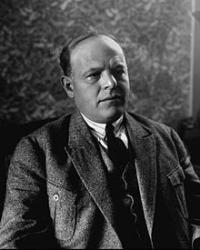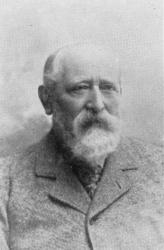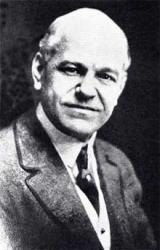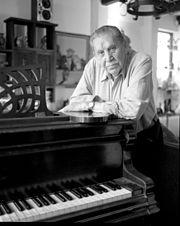Planning worship?
Check out our sister site, ZeteoSearch.org,
for 20+ additional resources related to your search.
- |
User Links
Browse People
Guillermo E. Biaggi
b. 1953 Person Name: Guillermo E. Biaggi (1953- ) Vers. esp. of "Gozo es conocer a Cristo" in Himnario Adventista del Séptimo Día
Guillermo E. Biaggi
Hayyim Nahman Bialik

1873 - 1934 Person Name: Chaim Nachman Bialik Author of "The Sun on the Treetops (שַׁבָּת הַמַּלְכָּה)" in Union Songster Hayim Nahman Bialik (Hebrew: חיים נחמן ביאליק; January 9, 1873 – July 4, 1934), also Chaim or Haim, was a Jewish poet who wrote primarily in Hebrew but also in Yiddish. Bialik was one of the pioneers of modern Hebrew poetry. He was part of the vanguard of Jewish thinkers who gave voice to the breath of new life in Jewish life. Bialik ultimately came to be recognized as Israel's national poet.
See more in:
Wikipedia
Hayyim Nahman Bialik
Bianco da Siena
1350 - 1434 Author of "Come Down, O Love Divine" in The Presbyterian Hymnal Bianco da Siena (b. Anciolina, circa 1350; d. Venice, Italy, circa 1434), an Italian poet and wool worker who was born at Anciolina, in the Val d'Arno. In 1367 he entered the Order of Jesuates, consisting of unordained men who followed the rule of St. Augustine. This order was instituted in that year by one John Colombinus of Siena, and suppressed by Pope Clement IX, possibly because of fear of not being able to control their mystical fervor. Little is known of Bianco beyond the fact that he is said to have lived in Venice for some years, and died there in 1434. His hymns were published at Lucca, in 1851, and edited by T. Bini, under the title, Laudi spirituali del Bianco da Siena.
Emily Brink
==============
Bianco da Siena, born at Anciolina, in the Val d'Arno, date unknown. In 1367 he entered the Order of Jesuates, consisting of unordained men who followed the rule of St. Augustine. This order was instituted in that year by one John Colombinus of Siena, and suppressed by Pope Clement IX. in 1668. Little is known of Bianco beyond the fact that he is said to have lived in Venice for some years, and died there in 1434. His hymns were published at Lucca, in 1851, and edited by T. Bini, under the title, Laudi spirituali del Bianco da Siena. This work contains 92 pieces. Of these the following have been translated into English, and have come into common use:—
1. Discendi, Amor santo. The Holy Spirit desired. This is No. 35 in the above work and is in 8 stanzas. Of these, Dr. Littledale gave 4 in the People's Hymnal, 1867, No. 473, as, "Come down, 0 Love Divine."
2. Gesil Christo amoroso. Missions. This is No. 79 of the above wdrk. It has been rendered into English by Dr. Littledale, and was published in the People's Hymnal, 1867, No. 400, as, "0 Jesu Christ, the loving.”
3. Vergine santa, sposa dell’ Agnello. St. Lucy. V. M . This is also from the foregoing work, No. 74, in 15 stanzas of 3 lines. Dr. Littledale's translation in the People's Hymnal, 1867, No. 226, is in 7 stanzas of 4 lines, and begins, "0 Virgin Spouse of Christ the Lamb."
4. Ama Jesu el tuo sposo diletto. Love for Jesus . This is No. 45 in the above work, in 33 stanzas. In 1866 Dr. Littledale contributed a cento therefrom to R. Brett's Office of the Moat Holy Name. This was transferred to Brooke's Churchman's Manual of Private & Family Devotion, 1882. It begins, "Love Jesus, Who hath sought thee so."
Although the translations Nos. 1-3 have not gone any further than the People's Hymnal, Nos. 1 and 2 are worthy of more extended use. [Rev. John Julian, D.D.]
-- John Julian, Dictionary of Hymnology (1907)
Bianco da Siena
Wilhelm von Bianowsky
Author of "Remember Me" in Hymns from the Land of Luther
Wilhelm von Bianowsky
Bible and Publication Society
Person Name: The Bible and Publication Society Publisher of "" in The Baptist Hymn and Tune Book for Public Worship Philadelphia
Bible and Publication Society
Bible Conference Committee
Publisher of "" in Foundation Hymns Philadelphia
Bible Conference Committee
Bible Institute Colportage Association
Person Name: The Bible Institute Colportage Association Publisher of "" in Famous Gospel Hymns Chicago
Bible Institute Colportage Association
Bible School
Publisher of "" in Selections from Warrior Songs for the White Cavalry, and Other Hymns. Special ed. for Campaign Use Shiloh, Maine
Bible School
Bible Truth Depot
Publisher of "" in Messages of Love Hymn Book St. Louis, Missouri
Bible Truth Depot
Biblical Research Society
Publisher of "" in Songs of Israel's Glory (The Messiah) Los Angeles
Biblical Research Society
C. Bicheler
Author of "O sanctissima, O piissima, Dulcis virgo Maria " in Cantate Omnes ... with Supplement
C. Bicheler
Philipp Bickel
1829 - 1914 Person Name: P. W. Bickel Translator of "Ehre, Ehre, Halleluja, Ob ich auch ein Fremdling"
Philipp Bickel
D. B. Bickerstaff
Composer of "[Jesus will lead us safely thru, help us each day His will to do]" in Golden Hours
D. B. Bickerstaff
Edward Bickersteth
1786 - 1850 Author of "With thankful hearts our songs we raise" in Christian Praise
Edward Bickersteth
Edward Henry Bickersteth

1825 - 1906 Person Name: Edward H. Bickersteth Author of ""For my sake and the gospel's" in The Hymnal Bickersteth, Edward Henry, D.D., son of Edward Bickersteth, Sr. born at Islington, Jan. 1825, and educated at Trinity College, Cambridge (B.A. with honours, 1847; M.A., 1850). On taking Holy Orders in 1848, he became curate of Banningham, Norfolk, and then of Christ Church, Tunbridge Wells. His preferment to the Rectory of Hinton-Martell, in 1852, was followed by that of the Vicarage of Christ Church, Hampstead, 1855. In 1885 he became Dean of Gloucester, and the same year Bishop of Exeter. Bishop Bickersteth's works, chiefly poetical, are:—
(l) Poems, 1849; (2) Water from the Well-spring, 1852; (3) The Rock of Ages, 1858 ; (4) Commentary on the New Testament, 1864; (5) Yesterday, To-day, and For Ever, 1867; (6) The Spirit of Life, 1868; (7) The Two Brothers and other Poems, 1871; (8) The Master's Home Call, 1872 ; (9) The Shadowed Home and the Light Beyond, 1874; (10) The Beef and other Parables, 1873; (11) Songs in the House of Pilgrimage, N.D.; (12) From Year to Year, 1883.
As an editor of hymnals, Bp. Bickersteth has also been most successful. His collections are:—
(1) Psalms & Hymns, 1858, based on his father's Christian Psalmody, which passed through several editions; (2) The Hymnal Companion, 1870; (3) The Hymnal Companion revised and enlarged, 1876. Nos. 2 and 3, which are two editions of the same collection, have attained to an extensive circulation. [Ch. of England Hymnody.]
About 30 of Bp. Bickersteths hymns are in common use. Of these the best and most widely known are:—" Almighty Father, hear our cry"; "Come ye yourselves apart and rest awhile"; "Father of heaven above"; "My God, my Father, dost Thou call"; "O Jesu, Saviour of the lost"; "Peace, perfect peace"; "Rest in the Lord"; "Stand, Soldier of the Cross"; " Thine, Thine, for ever"; and "Till He come.” As a poet Bp. Bickersteth is well known. His reputation as a hymn-writer has also extended far and wide. Joined with a strong grasp of his subject, true poetic feeling, a pure rhythm, there is a soothing plaintiveness and individuality in his hymns which give them a distinct character of their own. His thoughts are usually with the individual, and not with the mass: with the single soul and his God, and not with a vast multitude bowed in adoration before the Almighty. Hence, although many of his hymns are eminently suited to congregational purposes, and have attained to a wide popularity, yet his finest productions are those which are best suited for private use.
-John Julian, Dictionary of Hymnology (1907)
=================
Bickersteth, Edward Henry, p. 141, ii. Bishop Bickersteth's 1890 edition of his Hymnal Companion is noted on p. 1312, i., and several of his own hymns and translations, which appear therein for the first time, are annotated in this Appendix. One of these, "All-merciful, Almighty Lord," for the Conv. of St. Paul, was written for the 1890 edition of Hymnal Companion.
--John Julian, Dictionary of Hymnology, Appendix, Part II (1907)
==================
Bickersteth, B. H., p. 141, ii. Bp. Bickersteth died in London, May 16, 1906.
--John Julian, Dictionary of Hymnology, New Supplement (1907)
Edward Henry Bickersteth
John Bickersteth
1781 - 1855 Author of "Great God, let children to thy throne Look up" Bickersteth, John, M.A., son of Henry Bickersteth, surgeon, born at Kirkby-Lonsdale, June, 19, 1781, and educated at the Grammar School of that town, and Trinity College, Cambridge, where he graduated in honours. Taking Holy Orders, he became Vicar of Acton, Suffolk, and subsequently Rector of Sapcote, Leicestershire. He died Oct. 2, 1855. The Dean of Lichfield is his second, and the late Bishop of Ripon his fourth son. In 1819 he published Psalms and Hymns, selected and revised for Public, Social, Family, or Secret Devotion, in which his hymns were included. A fourth edition, much enlarged, appeared in 1832. Of his hymns contributed to his Collection in 1819, the following were transferred to his brother's Christian Psalmody, 1833:—
1. Great God, let children to Thy throne. S. Schools.
2. Hast Thou, holy Lord, Redeemer. H. Communion.
3. Israel's Shepherd, guide me, feed me. H. Communion.
and were thus brought into wider notice than through his own work. No. 3 is sometimes given as "Heavenly Shepherd, guide us, feed us," as in the American Unitarian Hymns of the Spirit, Boston, 1864.
-- John Julian, Dictionary of Hymnology (1907)
John Bickersteth
J. G. Bickerton
1856 - 1941 Person Name: J. G. Bikerton Author of "Living for Jesus Only" Rev. Jabez G. Bickerton
J. G. Bickerton
W. G. Bickley
1842 - 1917 Author of "Haste to the Sunday School" William Green Bickley
W. G. Bickley
Clarence Bicknell

1842 - 1918 Person Name: C. Bicknell Translator of "Nun danku ni al Dio" in Himnaro Esperanta, 5-a eld. Clarence Bicknell (27 October 1842-17 July 1918) was a British amateur botanist, painter and archaeologist, with a doctorate in mathematics, and an Anglican priest (in Italy, from 1877 until he left the Church, date unknown). He was born in Herne Hill, England, on October 27, 1842, and died in Tenda (then in Italy, but since 1947 in France) on July 17, 1918.
Arriving in Italy in 1877 to work as an Anglican vicar, he built a museum ("Museo Biblioteca Clarence Bicknell") in Bordighera to house his botanical and archaeological collections. He became noted for his identification of the plants and petroglyphs of the Ligurian Riviera. His writings included Flowering Plants of the Riviera and Neighboring Mountains (1885) and Guide to the Prehistoric Rock Engravings of the Italian Maritime Alps (1913). In addition to his own museum, his collections were archived at the University of Genoa.
A Volapükist, he left that language for Esperanto in 1897. He attended the first international Esperanto convention, at Boulogne-sur-mer, France, in 1905. He produced a number of hymns that are still in use (seven translations and one original in Adoru Kantante (1971), and nine texts in Adoru (2001). He was active in work on behalf of the blind, and transcribed many Esperanto books into braille. In addition to his hymnic work, he wrote many original poems in, and translated secular poetry into, Esperanto, including Macaulay's "Horacio", 1906; Tennyson's "Gvinevero", 1907; pieces by Sturgis; Giacosa's "Ŝakludo", 1915. He also provided monetary support to many Esperanto activities, and founded and led until his death the local Esperanto club in Bordighera.
Regrettably, the date, reason, and nature of his "leaving the church" is not explained in the sources consulted (mainly the English, Italian, and Esperanto Wikipedias and the author indexes of the Esperanto hymnals).
See also http://www.clarencebicknell.com/index.php?option=com_content&view=article&id=16&Itemid=157&lang=en at clarencebicknell.com, the website of the Clarence Bicknell Association.
Leland Bryant Ross
Clarence Bicknell
Robert Bicknell
Person Name: Robert Bicknall Author of "Lord, make me an instrument" in Complete Mission Praise
Robert Bicknell
William F. Biddle
1834 - 1934 Person Name: W. F. Biddle Composer of "ERNESTA" in Carmina for the Sunday School and Social Worship
William F. Biddle
L. A. Bidez
Composer of "[Thou on my head in early youth didst smile]" in Popular Hymns Number 2
L. A. Bidez
Suzanne Bidgrain
1879 - 1961 Person Name: Suzanna Bidgrain, 1879-1961 Translator (French) of "Let All Mortal Flesh Keep Silence" in The Hymn Book of the Anglican Church of Canada and the United Church of Canada
Suzanne Bidgrain
Philip Biedenbender
Composer of "NEW 43RD" in Christian Worship Philip Biedenbender is a composer and pianist living in North Carolina. He earned a Bachelor's degree in theory and composition from St. Olof College and a Master's degree in choral conducting fro Florida State University. He was choral director at Ashbrook High School in Gastonia, NC and is currently serving as Managing Director, Assistant Conductor, and Pianist for the Charlotte Master Chorale as well as the Chancel Choir director at First ARP Church in Gastonia.
Dianne Shapiro from philipbiedenbender.com (accessed Sept. 3, 2022)
Philip Biedenbender
E. J. Biedermann
Arranger of "[An atom is a little thing]" in The Assembly Hymn and Song Collection
E. J. Biedermann
William E. Biederwolf

1867 - 1939 Person Name: W. E. Biederwolf Editor of "" in Glad Tidings in Song
William E. Biederwolf
Caspar Bienemann
1540 - 1591 Person Name: K. Bienemann, 1540-91 Author of "Lord, as Thou Wilt, Deal Thou with Me" in Evangelical Lutheran Hymnary Bienemann, Caspar, son of Conrad Bienemann, a burgess of Nürnberg, was born at Nürnberg, Jan. 3, 1540. After the completion of his studies at Jena and Tubingen, he was sent by the Emperor Maximilian II. with an embassy to Greece as interpreter. In Greece he assumed the name of Melissander (a translation into Greek of his German name), by which he is frequently known. After his return he was appointed Professor at Lauingen, Bavaria, and then Abt at Bahr (Lahr?), and General Superintendent of Pfalz Neuburg; but on the outbreak of the Synergistic Controversy he had to resign his post. In 1571 he received from the University of Jena the degree of D.D., and in the same year was appointed, by Duke Johann Wilheim, of Suchsen Weimar, tutor to the Crown Prince Friedrich Wilheim. But when on the death of the Duke, in 1573, the Elector August, of Saxony, assumed the Regency, the Calvinistic court party gained the ascendancy, and succeeded in displacing Bienemann and other Lutheran pastors in the Duchy. Finally, in 1578, he was appointed pastor and General Superintendent at Altenburg, and d. there Sept. 12, 1591 (Koch, ii. 248-252; Allgemeine Deutsche Biographie, ii. 626). One of his hymns has passed into English.
Herr wie du willt, so schicks mit mir. [Resignation.] Written in 1574, while he was tutor to the children of Duke Johann Wilheim of Sachsen Weimar, in expectation of a coming pestilence. He taught it as a prayer to his pupil the Princess Maria, then three years old, the initial letters of the three stanzas (H. Z. S.) forming an acrostic on her title, Hertzogin zu Sachsen. The Princess afterwards adopted as her motto the words "Herr wie du willt,*' and this motto forms the refrain of "Jesus, Jesus, nichts als Jesus," the best known hymn of the Countess Ludamilia Elizabeth of Schwarzburg-Rudolstadt (q. v.), (see Koch, viii. 370-371). This hymn "Herr wie" was first published in B.'s Betbüchlein, Leipzig, 1582, in 3 stanzas of 7 lines, marked as C. Meliss D. 1574, with the title, "Motto and daily prayer of the illustrious and noble Princess and Lady, Lady Maria, by birth, Duchess of Saxony, Landgravine of Thuringia and Margravine of Meissen." Thence in Wackernagel, iv. p. 714. Included in the Greifswald Gesang-Buch. 1597, and others, and in the Unverfälschter Leidersegen, 1851, No. 578. The translations in common use are:—
1. Lord, as Thou wilt, whilst Thou my heart, good and full, by A. T. Russell, as No. 195 in his Psalms & Hymns, 1851.
2. Lord, as Thou wilt, deal Thou with me, in full, by E. Cronenwett, as No. 409 in the Ohio Lutheran Hymnal, 1880. Another translation is:—
"Lord, as Thou wilt, so do with me," by Dr. G. Walker, I860, p. 53. [Rev. James Mearns, M.A.]
-- John Julian, Dictionary of Hymnology (1907)
Caspar Bienemann
J. G. Bierck
Composer of "[Bendecid, al Señor, todos las Obras del Señor]" in Himnario provisional con los cánticos Rev. Julius G. Bierck, organist, choir director and assistant at Church of the Savior, Philadelphia.
Dianne Shapiro, from "Journal of the 114th Convention of the Protestant Episcopal Church in the Diocese of Philadelphia, held in Church of St. Luke and the Epiphany, Philadelphia, May 10, 11, and 12, 1898 (Philadelphia: Press of Avil Printing Company)
J. G. Bierck
John C. Bieri
1873 - 1951 Author of "Teach Me to Pray" John Casper Bieri attended Dickinson College and Drew Theological Seminary in Mlillerstown, Penn. He was minister at several United Methodist churches in Philadelphia from 1902 to 1940. He wrote over 60 hymns and is also known for magic presentations.
Dianne Shapiro, from Archives of the Susquehana Conference of the United Methodist Church (www.lycoming.edu/umarch/me_pastors/b.htm) (accessed Sept. 3, 2022)
John C. Bieri
James R. Biery
b. 1956 Person Name: James Biery Composer of "HALLANGER" in Break Forth in Joyous Song James R. Biery earned Bachelor and Master of Music degrees in organ performance at Northwestern University. He has composed both organ and choral works. He has served as music director at churches in Connecticut, Minnesota, and Michigan. He is married to Marilyn Biery and lives in Grosse Pointe Farms, Michigan.
Dianne Shapiro, from ECS Publishing Group website (https://www.canticledistributing.com/composers/b/james-biery.html) (accessed Sept. 3, 2022)
James R. Biery


 My Starred Hymns
My Starred Hymns



